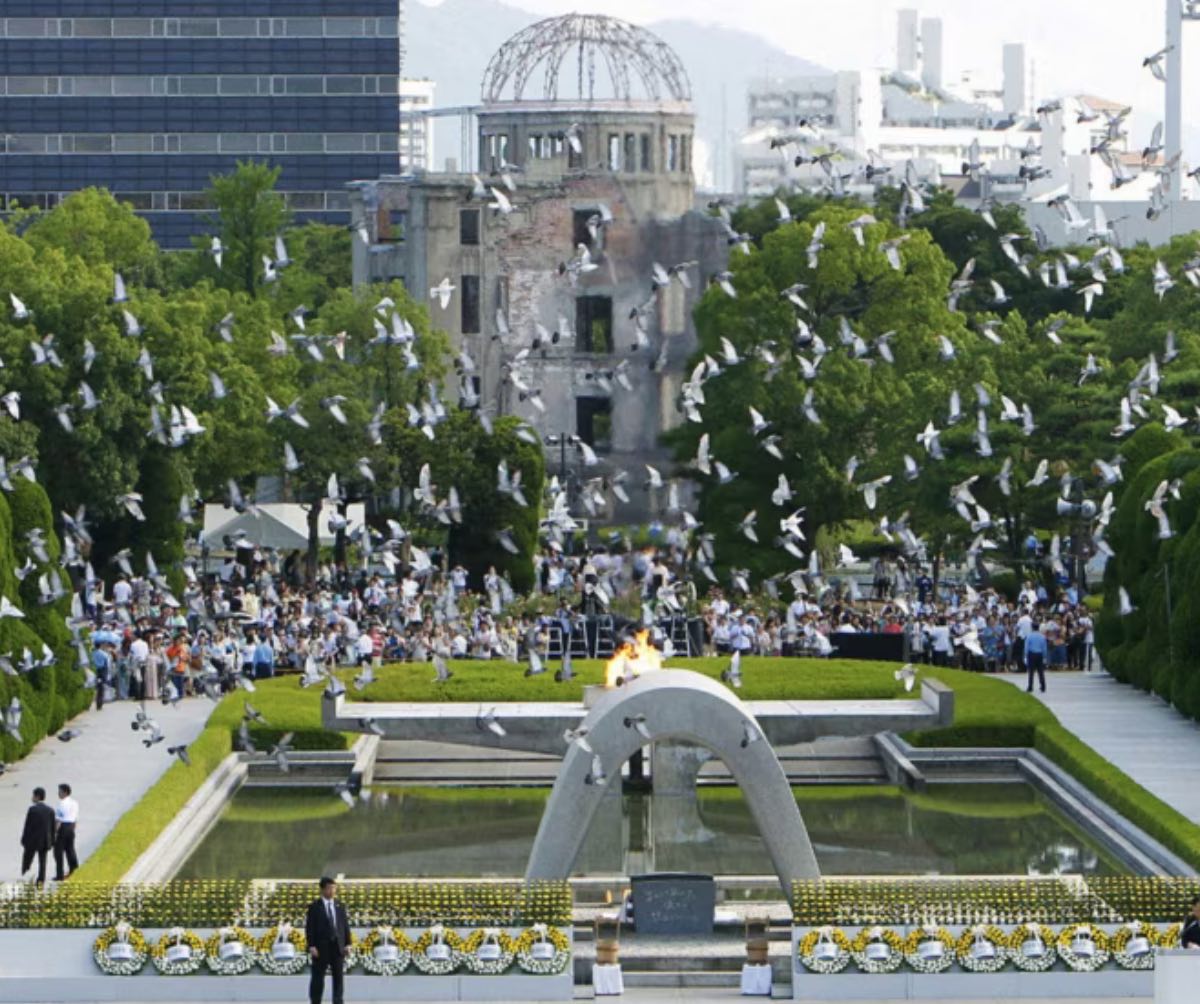[Ed. Note: This article is part of a collection of essays entitled “Critical Reflections on the 80th Anniversary of the End of World War II” published in August 2025.]
Keywords: state legitimacy, dominant narratives, official history, war museums, World War II
Is the history of a war that ended 80 years ago useful for understanding the contemporary world? Of course it is. Many countries, states, or new political orders in Europe and the Asia-Pacific were established in the aftermath of the war of 80 years ago and the subsequent process of decolonization. These include the Federal Republic of Germany, the People’s Republic of China, the Republic of India, Israel, the Republic of Indonesia, Japan, and many more.
Because of this, ways of remembering and commemorating the war of 80 years past forms the basis of legitimacy for many countries. It is not an exaggeration to say that one cannot understand the contemporary world without knowledge of the history of that war. This is the primary significance of studying war history. However, what happened in wartime and the dominant narratives on which each country’s legitimacy rests are very different things. Thus, historical research on the war often creates friction with dominant narratives, sometimes even leading to the subversion of those narratives. This is a second vital reason for studying and pursuing research on war history.
These points are general, but the way they apply to each country and its distinct historical context is unique. So in what ways do these general theories apply to Japan? I would argue that understanding the wars of the mid-20th century is vital for understanding Japan’s post-1945 trajectory and social and geo-political issues at present.
Unlike most European countries and Russia, Japan did not experience World War I in a serious way. Nor did it experience wars of independence or democratization struggles like many countries in Asia and Africa. The end of the Cold War also did not hold as much significance in East Asia as compared to Europe. In Japan, developments those other countries experienced during World War I, wars of independence, or democratization struggles — such as the massive deaths of soldiers and civilians, the devastation of the homeland, regime change, and democratization — were experienced instead in the war that ended 80 years ago.
This made “that war” and the “postwar period” distinct for Japan. Western European and American historians might view World War II as just one of many wars in the 20th century. However, in Japan, the war is not positioned in such a way. The impact of that war was greater in Japan than in many other countries, so understanding it is very useful for understanding Japanese society, culture, politics, and economics.
So, in this context, is studying the history of the war and attempting to re-examine or subvert dominant narratives be useful in Japan? I believe it is less so than for other countries. The reason is simple: a dominant narrative regarding the war 80 years ago has not been established in Japan. This is evident from the fact that there are no official war museums or modern history museums in Japan. What exists in Japan are only a few museums that exhibit region-specific experiences, such as the Hiroshima Prefectural Peace Memorial Museum, the Nagasaki Prefectural Atomic Bomb Museum, or the Okinawa Prefectural Peace Memorial Museum. Furthermore, these museums displaying regional war experiences are exceptional; the war-related exhibition at the Tokyo Metropolitan Edo-Tokyo Museum is minimal, seemingly more of an excuse to fend off criticism that nothing is being exhibited. Various organizations, politicians, and historians in Japan have asserted their views on the history of the war, but none have gained sufficient support of the people. These facts indicate that a dominant narrative of that war has not been established in Japan. It is difficult to re-examine or subvert a narrative that has not been established.
Because no single historical perspective gained majority support, a compromise was formed after the 1960s. This compromise – the greatest common denominator, so to speak – prioritized economic growth while empathizing with Japanese people’s experiences of the destruction of war. It is true that many small stories consistent with this compromise were present in mass-produced in films, novels, and TV dramas. It is also true that these small stories were inward-looking, forgetting the aggression and colonial rule of the Greater Japanese Empire era. However, this was not a historical perspective systemic enough to become the dominant narrative of museum exhibits.
To conclude, the history of the war 80 years ago is extremely useful for understanding Japan. However, as is the case with research about any country, effective research cannot be conducted without considering Japan’s specific historical context. It is a worthwhile attempt to critically re-examine the dominant narrative regarding the war, but we must acknowledge the fact that such a narrative has not been established in Japan. Therefore, research should first be directed towards questions such as: Why was a dominant narrative not established in Japan? What kind of legitimacy exists in the post-war Japanese state? What kind of impact did the lack of a dominant narrative have on Japanese society? How do people engage in intellectual thought and the arts in relation to the war in such a state? These questions have not been sufficiently examined thus far. Investigating such questions might be a way of passing on the memory of the war to the future. This could be a vital part of re-examining Japanese society itself from 80 years ago to the present day.



